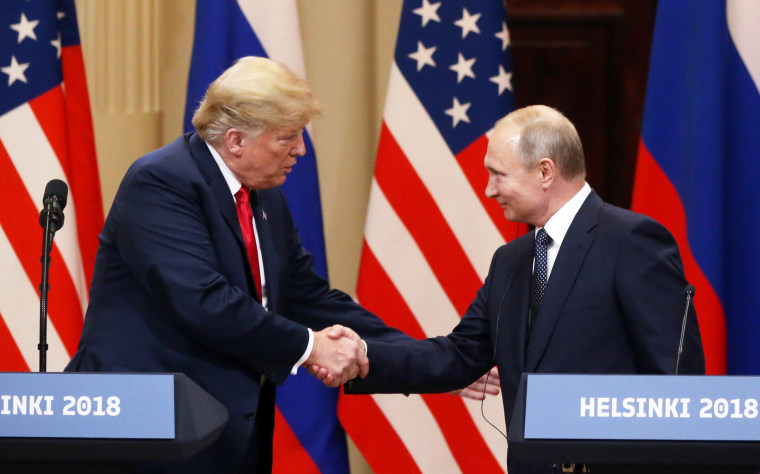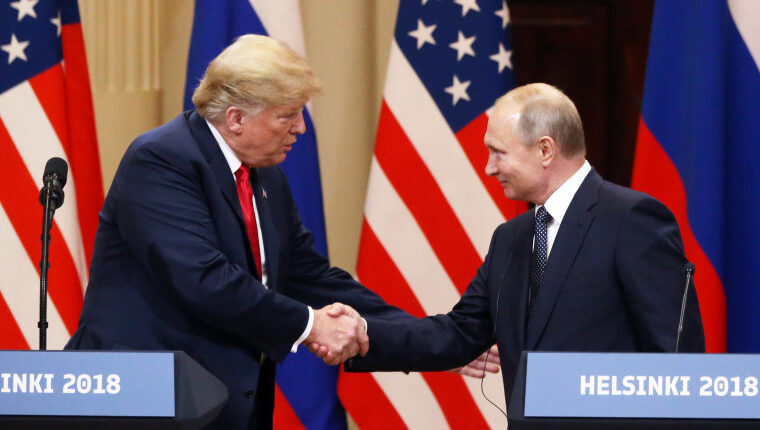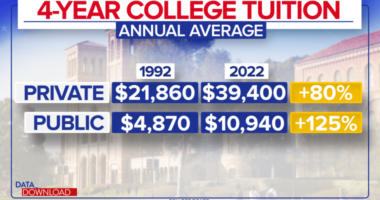WASHINGTON — The special counsel who spent four years investigating the Trump-Russia probe accused the FBI of acting negligently by opening the investigation based on vague and insufficient information in a sweeping 300-page report made public Monday.
Special counsel John Durham, named by then-Attorney General Bill Barr to examine the origins and conduct of the investigation into whether Donald Trump’s 2016 presidential campaign colluded with Russia, criticized the FBI at length in the report.
“The (Justice) Department and the FBI failed to uphold their important mission of strict fidelity to law,” the conclusion section of Durham’s report says. “Senior FBI personal displayed a serious lack of analytical rigor toward the information they received, especially information received from politically affiliated persons or entities.”
The FBI, in response to the report, indicated that the missteps identified by Durham have already been addressed.

“The conduct in 2016 and 2017 that Special Counsel Durham examined was the reason that current FBI leadership already implemented dozens of corrective actions, which have now been in place for some time,” the statement said. “Had those reforms been in place in 2016, the missteps identified in the report could have been prevented. This report reinforces the importance of ensuring the FBI continues to do its work with the rigor, objectivity, and professionalism the American people deserve and rightly expect.”
Durham lost the only two prosecutions he brought to court. But the report released Monday appeared to be an appeal to the court of public opinion — an argument that Trump was treated unfairly by FBI officials who were too quick to unleash the bureau’s investigative powers.
Trump allies have been eager to see the report, arguing that Durham would make clear what the former president has been saying all along — that his campaign did nothing wrong but that the Obama administration was using the power of the federal government to try to influence the 2016 election.
Durham’s central conclusions were previously contradicted by a 2019 report by the Justice Department’s internal watchdog, which found that while the FBI made a series of mistakes, the decision to open the Trump Russia probe was justified as a matter of law and policy — and untainted by any evidence of political bias.
Durham, who issued a statement disagreeing with the Justice Dept. inspector general’s report at the time, expanded his dissent in the report released Monday.
Durham, a former U.S. attorney in Connecticut, submitted his report on Friday to Attorney General Merrick Garland, who read it over the weekend and ordered it released without changes, according to a DOJ spokesperson.
Durham’s report examines in painstaking detail various aspects of the now infamous FBI investigation code-named “Crossfire Hurricane,” which led to the appointment of special counsel Robert Mueller. Mueller ultimately did not establish any coordination between the Trump campaign and Russia, but he found a series of contacts between campaign officials and Russians and a campaign that was willing and eager to accept help from Moscow. A bipartisan Senate intelligence committee report went further, saying the Trump campaign posed a counterintelligence risk to the United States by opening itself to foreign influence.
But Durham argues that the FBI acted too hastily when it opened the Crossfire Hurricane investigation in July 2016, after a Trump campaign aide told an Australian diplomat that the Trump campaign had received an offer from Russia to help Trump by releasing damaging information on his opponent, Democrat Hillary Clinton.
Durham’s investigation found that at the time, neither the FBI nor CIA had any intelligence suggesting an improper relationship between Trump and Russia. But it also noted that it was known by then that Russian intelligence had hacked the Democrats, and Trump had made his infamous comment publicly beseeching Russia to find emails that were missing from a server used by Clinton.
Durham says the FBI opened a full counterintelligence investigation of the Trump campaign “based on raw, uncorroborated information,” and the key agent involved in the decision, Peter Strzok, was later found to have excoriated Trump in private texts to a companion.
Durham says the FBI took a much different approach with other counterintelligence matters that had the potential to affect the election. For example, when it learned that an unnamed foreign government was seeking to influence the Clinton campaign with political contributions, the FBI moved cautiously and ultimately provided fact-specific “defensive briefings,” warning Clinton campaign officials — something the FBI decided not to do with Trump.
The Durham report also discusses intelligence gathered in 2016 that suggested that the Russian government believed Clinton had a plan to vilify Trump “by stirring up a scandal claiming interference by the Russian security services.” Durham appears to suggest that the intelligence information should have given the FBI pause in its pursuit of allegations involving the Trump campaign. A former senior intelligence official told NBC News that the intelligence in question was never verified.
While the report is the first time Durham makes sweeping conclusions, much of the lengthy documents summarizes well-known history, including examining the veracity of the so-called dossier gathered by former British intelligence operative Christopher Steele, which the FBI relied on in part to get a national security warrant to conduct surveillance on Trump aide Carter Page.
The FBI was not able to substantiate most of the dossier, which appeared to be gathered in large part by a Russian named Igor Danchenko.
Durham prosecuted Danchenko on charges of lying to the FBI, but a jury acquitted him. Another jury absolved Michael Sussmann, a lawyer that Durham also charged with lying.
Durham secured a guilty plea from an FBI lawyer, Kevin Clinesmith, who admitted falsifying an application for a national security warrant for Page. Clinesmith got probation and his law license was suspended for a year. The FBI also overhauled the way it deals with FISA warrants.
Source: | This article originally belongs to Nbcnews.com










